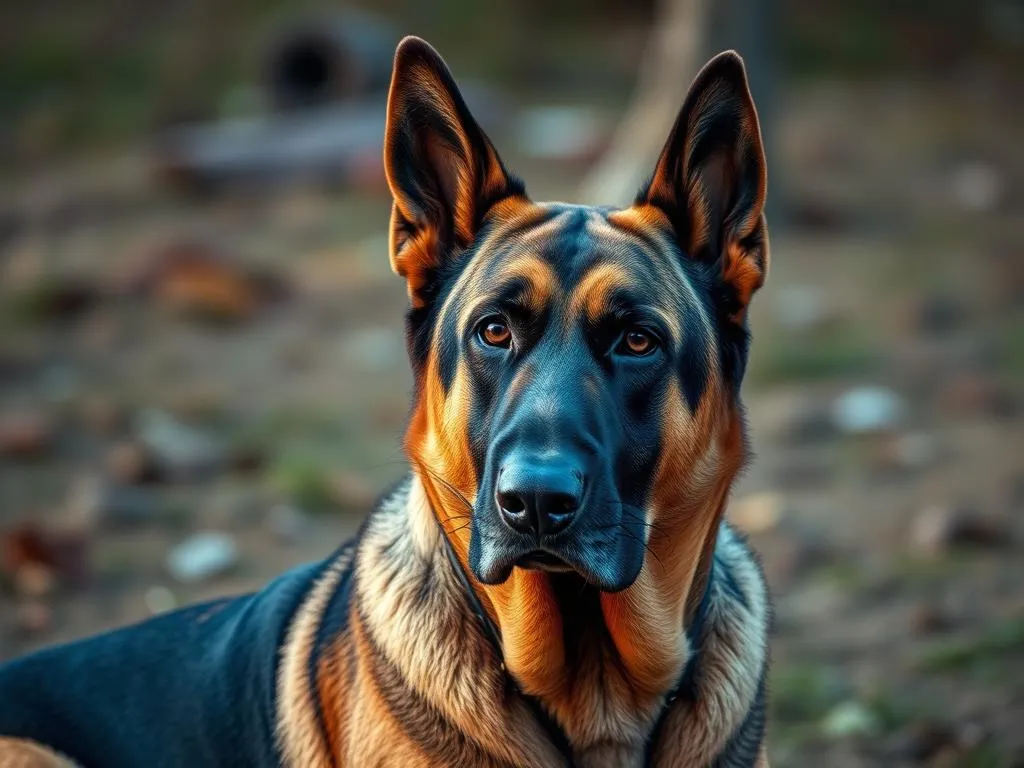
Introduction
The Bloodhound is a distinctive breed, renowned for its incredible sense of smell and its gentle demeanor. Often seen as a favorite in search and rescue operations, this breed has a legacy that goes back centuries. However, before considering adding a Bloodhound to your family, it is crucial to understand the pros and cons of owning one. This article aims to provide potential dog owners with a comprehensive overview of the Bloodhound’s characteristics, advantages, and disadvantages, helping them make an informed decision about whether this breed fits their lifestyle.
Overview of the Bloodhound Breed
History and Origins
The Bloodhound has a rich history that dates back to medieval Europe. Originally bred in Belgium, this breed was known as the St. Hubert Hound, named after a saint who is considered the patron of hunters. The Bloodhound’s primary purpose was hunting, particularly for tracking game. Over the years, their exceptional scent-tracking abilities made them invaluable to law enforcement and search-and-rescue operations, solidifying their place in both history and modern-day society.
Physical Characteristics
- Size and Weight: Bloodhounds are large dogs, typically weighing between 80 to 110 pounds. Males are generally larger than females.
- Coat Color and Texture: They have a short, weather-resistant coat that can come in various colors, including black and tan, liver and tan, and red.
- Distinctive Features: One of the most recognizable features of a Bloodhound is its long, droopy ears and wrinkled face. Their large, soulful eyes and loose skin give them a unique and endearing appearance.
Temperament
The Bloodhound is known for its friendly and affectionate nature. They are gentle giants, often displaying a calm disposition. These dogs require socialization from an early age to ensure they develop good behaviors. Bloodhounds are generally good with children and can be friendly towards other pets, although early introductions and supervision are essential.
Pros of Owning a Bloodhound
Exceptional Sense of Smell
One of the most significant pros of owning a Bloodhound is their exceptional sense of smell. This breed has one of the most advanced olfactory systems in the animal kingdom, allowing them to track scents over great distances and even days after the scent was left. Bloodhounds are frequently employed in search and rescue operations, law enforcement, and even by private individuals for tracking lost pets. Their ability to follow a scent trail is unmatched, making them invaluable in various situations.
Gentle and Affectionate Nature
Bloodhounds are known for their gentle and affectionate nature. They thrive on companionship and enjoy being part of the family. These dogs form strong bonds with their owners, often displaying loyalty and love. Their calm demeanor makes them ideal companions for families, and they are known to be particularly good with children, providing a loving and nurturing presence.
Good with Children
Another significant advantage of owning a Bloodhound is their reputation for being good with children. These dogs are typically patient and tolerant, making them suitable family pets. Many Bloodhounds are known to play gently with kids and can even be protective of them. Their playful yet gentle nature makes them an excellent addition to active households with children.
Low Grooming Needs
Bloodhounds require minimal grooming compared to many other breeds. Their short coat is relatively low-maintenance, requiring only occasional brushing to remove loose hair and dirt. This aspect is particularly beneficial for busy dog owners who may not have the time for extensive grooming routines. Additionally, Bloodhounds do not have a strong odor, which makes them pleasant companions.
Unique Personality
The unique personality of a Bloodhound adds to their charm. They are often described as quirky, with a variety of amusing habits that can entertain their owners. Their curious nature and love for exploration mean they can be quite amusing to watch, making them great companions for those who appreciate a dog with character.
Cons of Owning a Bloodhound
High Energy Levels
While Bloodhounds are known for their gentle demeanor, they also possess high energy levels. These dogs need regular exercise to keep them physically and mentally stimulated. Without adequate exercise, Bloodhounds can become bored and may resort to destructive behaviors. This can be a challenge for owners who lead a more sedentary lifestyle or those with limited outdoor space.
Stubbornness and Training Challenges
Training a Bloodhound can be a challenge, primarily due to their stubborn nature. While they are intelligent dogs, their independent streak can make them resistant to commands. Consistent and positive reinforcement training methods are essential for developing good behaviors. Patience is key, as Bloodhounds often require more time and effort in training compared to other breeds.
Strong Prey Drive
Bloodhounds have a strong prey drive, which can pose challenges for homes with small pets such as cats or rabbits. Their instinctual behaviors can lead them to chase after smaller animals. This characteristic necessitates careful supervision and potentially separate living spaces if other pets are present in the household.
Potential Health Issues
Like all breeds, Bloodhounds are prone to certain health issues. Common concerns include hip dysplasia, ear infections, and certain skin conditions due to their loose skin. Regular veterinary check-ups and a healthy diet can help mitigate these risks, but potential owners should be aware of these issues and be prepared for the associated costs of care.
Noise and Barking
Bloodhounds are known for their vocal tendencies, which can be a consideration for potential owners. They may bark or bay when they are excited, bored, or want attention. This vocalization can be problematic in apartment living or close-knit neighborhoods where noise may disturb neighbors. Training and socialization can help manage their vocalizations, but it requires a commitment from the owner.
Ideal Living Conditions for a Bloodhound
Space Requirements
Bloodhounds thrive in spaces that allow for movement and exploration. Ideally, they require a large yard or access to open areas where they can run and play. Regular exercise is essential for their physical and mental well-being, so having adequate space is crucial for a Bloodhound’s happiness.
Family Dynamics
Bloodhounds do best in active family situations. They are well-suited for families with children, where they can engage in play and receive plenty of attention. Additionally, they can adapt to homes with multiple pets, provided that introductions are handled carefully. A loving and active environment will help them flourish.
Time Commitment
Owning a Bloodhound requires a substantial time commitment. These dogs need daily exercise, training, and social interaction to thrive. Potential owners should be prepared to invest time in regular walks, playtime, and training sessions. Mental stimulation, such as puzzle toys or scent games, is also beneficial for keeping a Bloodhound engaged.
How to Choose a Bloodhound
Adoption vs. Breeder
When considering a Bloodhound, potential owners face the decision of whether to adopt from a shelter or purchase from a breeder. Both options have their pros and cons. Adoption can provide a loving home for a dog in need, while breeders can offer specific lineage and health information. Key questions to ask include the dog’s health history, temperament, and any behavioral issues.
Evaluating Bloodhound Temperament
When meeting potential Bloodhounds, it is essential to evaluate their temperament. Look for signs of friendliness, curiosity, and sociability. Observing how the dog interacts with people and other animals can provide insight into their personality. Meeting the dog before making a commitment helps ensure a good match for your family and lifestyle.
Preparing Your Home
Before bringing a Bloodhound home, preparation is vital. Essential items include a comfortable bed, food and water bowls, toys, and grooming supplies. Additionally, preparing your family and existing pets for the new arrival is crucial. Discussing the responsibilities and ensuring everyone is on board can help create a smooth transition.
Conclusion
In summary, the Bloodhound is a remarkable breed with many admirable qualities, including their exceptional sense of smell and gentle nature. However, owning a Bloodhound also comes with challenges, such as their high energy levels and training difficulties. Potential owners should weigh the pros and cons carefully, considering their lifestyle, living conditions, and willingness to commit time and effort to training and socialization.
Ultimately, Bloodhounds can make wonderful companions for the right families, providing love, loyalty, and unique personality traits. It is essential for potential dog owners to do thorough research and consider their ability to meet the needs of this remarkable breed before making a commitment.
FAQs
What is the lifespan of a Bloodhound?
Bloodhounds typically have a lifespan of 10 to 12 years, although some may live longer with proper care.
Are Bloodhounds easy to train?
Bloodhounds can be stubborn and may present training challenges, but with patience and positive reinforcement, they can be trained effectively.
How much exercise does a Bloodhound need?
Bloodhounds require at least an hour of exercise each day, including walks and playtime, to keep them healthy and happy.
Do Bloodhounds shed a lot?
Bloodhounds do shed, but their short coat requires minimal grooming, making them relatively low-maintenance in this regard.
Can Bloodhounds be left alone for long periods?
Bloodhounds are social animals and do not like being left alone for extended periods. They thrive on companionship and can become bored or anxious if left alone too long.









